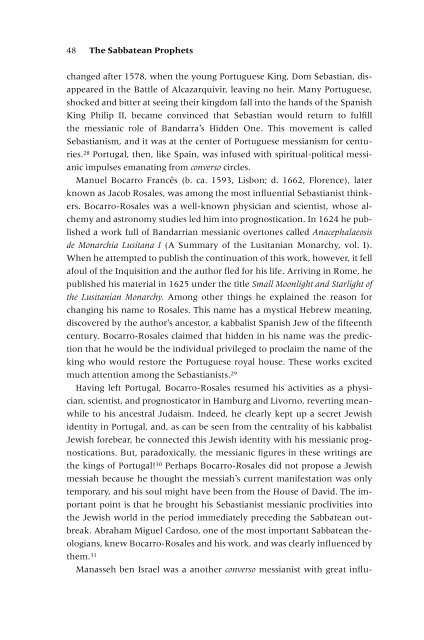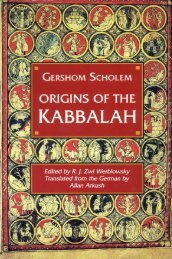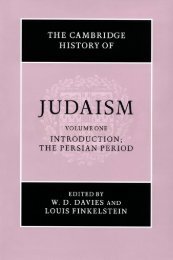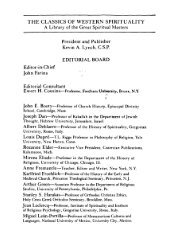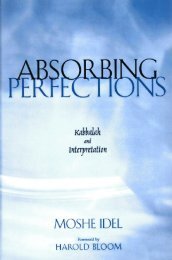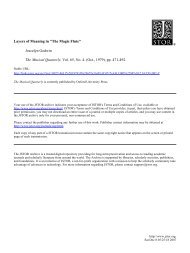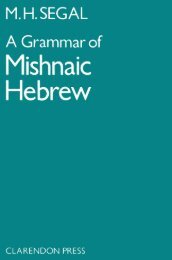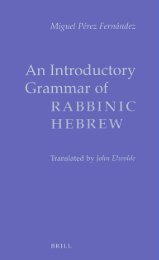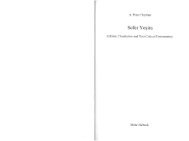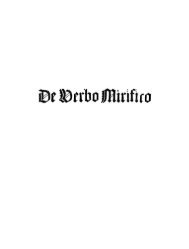Create successful ePaper yourself
Turn your PDF publications into a flip-book with our unique Google optimized e-Paper software.
48 <strong>The</strong> <strong>Sabbatean</strong> <strong>Prophets</strong><br />
changed after 1578, when the young Portuguese King, Dom Sebastian, disappeared<br />
in the Battle of Alcazarquivir, leaving no heir. Many Portuguese,<br />
shocked and bitter at seeing their kingdom fall into the hands of the Spanish<br />
King Philip II, became convinced that Sebastian would return to fulfill<br />
the messianic role of Bandarra’s Hidden One. This movement is called<br />
Sebastianism, and it was at the center of Portuguese messianism for centuries.<br />
28 Portugal, then, like Spain, was infused with spiritual-political messianic<br />
impulses emanating from converso circles.<br />
Manuel Bocarro Francês (b. ca. 1593, Lisbon; d. 1662, Florence), later<br />
known as Jacob Rosales, was among the most influential Sebastianist thinkers.<br />
Bocarro-Rosales was a well-known physician and scientist, whose alchemy<br />
and astronomy studies led him into prognostication. In 1624 he published<br />
a work full of Bandarrian messianic overtones called Anacephalaeosis<br />
de Monarchia Lusitana I (A Summary of the Lusitanian Monarchy, vol. I).<br />
When he attempted to publish the continuation of this work, however, it fell<br />
afoul of the Inquisition and the author fled for his life. Arriving in Rome, he<br />
published his material in 1625 under the title Small Moonlight and Starlight of<br />
the Lusitanian Monarchy. Among other things he explained the reason for<br />
changing his name to Rosales. This name has a mystical Hebrew meaning,<br />
discovered by the author’s ancestor, a kabbalist Spanish Jew of the fifteenth<br />
century. Bocarro-Rosales claimed that hidden in his name was the prediction<br />
that he would be the individual privileged to proclaim the name of the<br />
king who would restore the Portuguese royal house. <strong>The</strong>se works excited<br />
much attention among the Sebastianists. 29<br />
Having left Portugal, Bocarro-Rosales resumed his activities as a physician,<br />
scientist, and prognosticator in Hamburg and Livorno, reverting meanwhile<br />
to his ancestral Judaism. Indeed, he clearly kept up a secret Jewish<br />
identity in Portugal, and, as can be seen from the centrality of his kabbalist<br />
Jewish forebear, he connected this Jewish identity with his messianic prognostications.<br />
But, paradoxically, the messianic figures in these writings are<br />
the kings of Portugal! 30 Perhaps Bocarro-Rosales did not propose a Jewish<br />
messiah because he thought the messiah’s current manifestation was only<br />
temporary, and his soul might have been from the House of David. <strong>The</strong> important<br />
point is that he brought his Sebastianist messianic proclivities into<br />
the Jewish world in the period immediately preceding the <strong>Sabbatean</strong> outbreak.<br />
Abraham Miguel Cardoso, one of the most important <strong>Sabbatean</strong> theologians,<br />
knew Bocarro-Rosales and his work, and was clearly influenced by<br />
them. 31<br />
Manasseh ben Israel was a another converso messianist with great influ-


